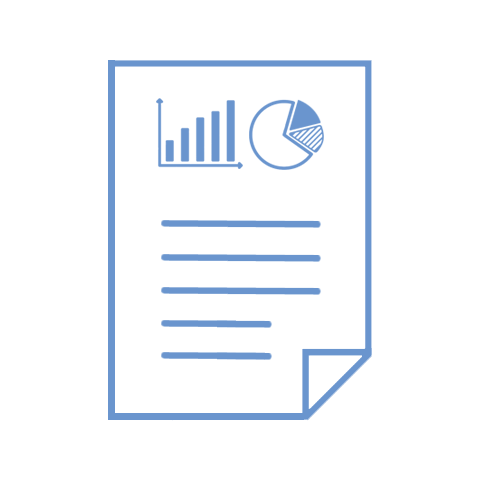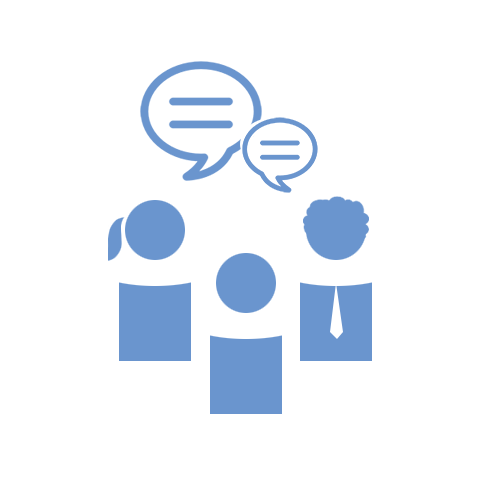
Articles
Forecasting the future is critical to everything we do. Done properly, it can help us avoid war and economic disaster, or bring health and prosperity to millions of people. But most people aren’t very good at it, and when our predictions are wrong, tragedy often follows.
For more than 30 years, professor Philip Tetlock has been studying the way we make predictions, and identifying "superforecasters" who do this unusually well. In his second interview on the 80,000 Hours podcast, he explains his latest research and offers advice on improving your own forecasting ability.
(If you enjoyed the podcast or the article, consider signing up for Professor Tetlock’s upcoming forecasting competition.)
—
With each passing month, more fast-food chains add meat alternatives to their menus, which is a promising trend for animal welfare. This article lists over a dozen chains that offer plant-based meat, including Burger King's Impossible Whoppers and Tim Hortons' Beyond Meat sausage.
But this rising popularity may have sparked new opposition: At the urging of cattle farmers, the state of Mississippi recently banned the sale of foods labeled with terms like “veggie burger” or “vegan hot dog”, provoking a legal battle that may be repeated across the U.S.
—
Jaan Tallinn, a co-founder of Skype, was a major early donor to research on artificial intelligence alignment. In an interview with the Future Perfect podcast, he explains his concerns about the risks posed by nonhuman minds and shares his thoughts on the portrayal of AI in popular culture. (You can hear the full podcast here.)
—
Economists have proposed many different strategies for reducing poverty in the developing world. These include cash transfers (giving people money they might use to gain skills or build a business) and direct employment (giving people jobs).
One recent study (full paper here) compared the two directly, giving Ethiopian jobseekers either a cash transfer or a position in farming or manufacturing.
The result: Though cash transfers initially boosted work hours and weekly earnings, the benefits of both programs faded away. After five years, neither group had better outcomes than people who hadn’t been helped. The authors suggest that reducing poverty may require sustained assistance rather than a single intervention.
—
Most animal charity funding in the U.S. goes toward animal shelters. Within effective altruism, animal advocates usually focus on farmed animals, which are far more numerous and often experience terrible suffering.
But there are many other species that get even less attention — like insects and other invertebrates. How much concern should we have for the suffering of ants, bees, crabs, and other creatures whose lives we struggle to understand? Are they even sentient?
Researchers at Rethink Priorities just published a vast collection of evidence related to the question of invertebrate sentience in a new report, which covers everything from brain size and memory to anxiety and self-defense. If you’ve ever wanted to learn whether bees can be patient, or what happens when you give ecstasy to an octopus, this is your chance.
—
The Against Malaria Foundation (one of GiveWell’s highest-rated charities for many years) just hit the $200 million mark for all-time fundraising. More than 100,000 donors have funded 91 million bednets, likely averting tens of thousands of deaths and many other serious health issues.
EA Forum Highlights:
- Is the EA movement still growing?
- How likely is a nuclear exchange between the U.S. and Russia? How bad would the consequences be?
- A new EA-aligned organization is looking for the most effective ways to increase human happiness
- Information security could be a high-impact career path for reducing catastrophic risk
Timeless Classic
When you encounter a question which concerns something outside your own experience, should you trust the expert consensus, or the view you personally find most persuasive?
This is a difficult choice, and one which is heavily debated within effective altruism:
- The movement’s core insights are often unintuitive and/or unpopular, and it’s rare that they perfectly match expert views.
- However, it’s also the case that experts have often spent thousands of hours studying some of the topics that interest us; they may have insights we’ll miss if we don’t engage with them.
Gregory Lewis’ “In Defence of Epistemic Modesty” holds that we should strongly prefer expert consensus in most cases, for reasons which include:
- We often know less than we think.
- Experts often know more than we realize.
- Issues are generally more complicated and tricky than we assume, and require deeper background to think about clearly.
For further insight on this topic, see:
- This debate/discussion between Lewis and Oliver Habryka.
- This summary of Inadequate Equilibria, a book which discusses cases where expert consensus falls short (among other topics).
Announcements
Applications for EA Global: London 2019 are now open!
If you already have a solid understanding of effective altruism and want to network, gain skills, study more complex problems, or move into a new role, this conference (held from 18-20 October) is designed for you.
Early-bird tickets are available at £299 until midnight on 31 July, and £399 thereafter. Discount codes will also be available during registration for anyone who needs them.
Tickets are also available for EAGxAustralia 2019, which will take place in Sydney from 28-29 September.
—
Philip Tetlock, whose work on forecasting has shaped the way governments and corporations make decisions, is running a new prediction tournament. Participants will predict how changes in a game of Civilization V might affect how the rest of the game plays out, and explain their rationale in detail. The results will help Tetlock’s team learn about the value of simulated worlds as a training tool for real-world forecasting.
Participants who perform well in the initial practice tasks may be selected for a further stage of the study, where they’ll join problem-solving teams alongside superforecasters and earn $1000 for their time (20-40 hours of work).
To join the tournament, complete this survey by 15 July.
—
The Effective Altruism Foundation opened the first application round for their fund (roughly $425,000 available), which focuses on reducing risks of astronomical suffering. The deadline for applications is 11 August.
Jobs
As always, 80,000 Hours’ High-Impact Job Board features a wide range of positions.
If you’re interested in policy or global development, you may also want to check Tom Wein’s list of social purpose job boards.
If you want to hear about new positions as they arise (or post a position yourself), check out the EA Job Postings group on Facebook.
- Congressional Innovation Fellow, TechCongress
- Research Associate (Asia Studies), Council on Foreign Relations
- Policy Communications Manager (AI), Facebook
- Business Operations, OpenAI
- UX/UI Engineer, Founders Pledge
- Graphic Designer, Founders Pledge
- Full Stack Developer, Founders Pledge
- Community Manager, Founders Pledge
- Research Fellow, Open Philanthropy Project
- Communications Associate, Open Philanthropy Project
- VP of Marketing, GiveWell
- Operations Assistant, GiveWell
- Operations Associate, GiveWell
- Research Analyst / Senior Research Analyst / Senior Fellow, GiveWell
Updates
Updates are submitted by organizations and lightly edited for clarity.
80,000 Hours
80,000 Hours released three podcasts with a total of five and a half hours of discussion:
- Prof Cass Sunstein on how social change happens, and why it’s so often abrupt & unpredictable
- Accurately predicting the future is central to absolutely everything. Professor Tetlock has spent 40 years studying how to do it better.
- DeepMind’s plan to make AI systems robust & reliable, why it’s a core issue in AI design, and how to succeed at AI research
Additionally, Rob Wiblin was interviewed about long-termism on the Neoliberal Podcast.
Animal Charity Evaluators
Animal Charity Evaluators released their 2018 Year in Review, in which they outline their accomplishments and updates from 2018. They also published a guest blog post by Caroline Beret, discussing her experience as a communications intern with ACE.
Center for Human-Compatible AI
CHAI researchers attended ICML and presented On the Feasibility of Learning, Rather than Assuming, Human Biases for Reward Inference and Adversarial Policies: Attacking Deep Reinforcement Learning (the video can be found here starting at 1h:35m). Another ICML paper, Cognitive Model Priors for Predicting Human Decisions, was featured in a New Scientist article. CHAI were featured as a recommended charity by Founders Pledge.
Centre for Effective Altruism
CEA published an update covering work from the last few months. CEA’s Groups team published an EA Forum Post discussing the team’s work and the Community Building Grants program they run. The Events team ran EA Global: San Francisco, which featured dozens of speakers and more than 500 attendees.
Centre for the Study of Existential Risk
Luke Kemp was interviewed by Australian radio, and wrote an Aeon longread on civilizational collapse. Haydn Belfield was interviewed by the Naked Scientists. Simon Beard wrote about Deep Ethics for BBC Future. The APPG for Future Generations held a Parliamentary roundtable on negative emissions technologies. CSER engaged senior UK policy-makers at CSaP’s Whitehall conference.
Charity Entrepreneurship
Charity Entrepreneurship published two reports on corporate outreach:
- Did corporate campaigns in the US have any counterfactual impact? A quantitative model
- 35 Independent Pieces of Evidence for Why New Corporate Campaigns Might (or Might Not) Work
Future of Life Institute
FLI released a new podcast on the Comprehensive Nuclear Test Ban Treaty. All podcasts are now on Spotify and iHeartRadio. They also published a summary of Don’t Bank on the Bomb’s report on banks that invest in nuclear weapons producers, and an overview of the ICLR Safe Machine Learning Workshop.
GiveWell
GiveWell decided to grant $4.7 million in discretionary funds received during the first quarter of 2019 to the Against Malaria Foundation (AMF). They expect AMF to use this funding to distribute insecticide-treated nets in the Democratic Republic of the Congo. More details can be found in this blog post.
Leverhulme Centre for the Future of Intelligence
Seán Ó hÉigeartaigh and Haydn Belfield submitted written comments to the U.S. National Institute of Standards and Technology. CFI released a report on challenges to gender equality presented by recent AI developments. Charlotte Stix received a Rising Star award at CogX. Stephen Cave delivered a keynote lecture at the Centre for Science and Policy Conference. Daniel Dennett gave the annual Margaret Boden Lecture at Cambridge.
Machine Intelligence Research Institute
The Machine Intelligence Research Institute has released a new introductory paper on “Risks from Learned Optimization in Advanced Machine Learning Systems”—risks associated with optimizers that emerge in the course of learning, rather than being explicitly designed by programmers.
Open Philanthropy Project
The Open Philanthropy Project announced grants including $2.4M to UCLA to research the "epigenetic clock" and $1.9M to advance farm animal welfare in China. They also blogged about their bet on Sherlock Biosciences, and were featured in articles about effective giving in the Chronicle of Philanthropy and Salon.
The Life You Can Save
The Altruistic Accounting Project was successfully piloted with 173 students, thanks to a donation provided by UTS Business School. The Giving Games Project joined forces with One for the World to bring effective giving to fall outreach events. They would also like to hear from anyone who is involved in women’s giving circles; please reach out to kathryn.mecrow@thelifeyoucansave.org.
Wild Animal Initiative
Wild Animal Initiative is pleased to announce that Michelle Graham has been selected as its Executive Director. Michelle is a PhD candidate in Engineering Mechanics at Virginia Tech, and previously worked as a researcher for WAI. WAI also released an analysis of the applications of the Conservation Evidence Database to welfare biology, and submitted a paper on age-specific mortality and wild animal welfare to a conservation biology journal.
Get Involved in Effective Altruism
The Effective Altruism Newsletter is a joint project between the Centre for Effective Altruism, and Rethink Charity.
This is an archived version of the EA Newsletter sent to 51,102 subscribers on March 7, 2019.
To see the full archives, click here.


